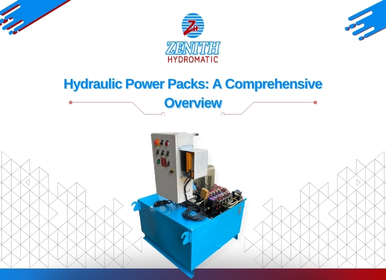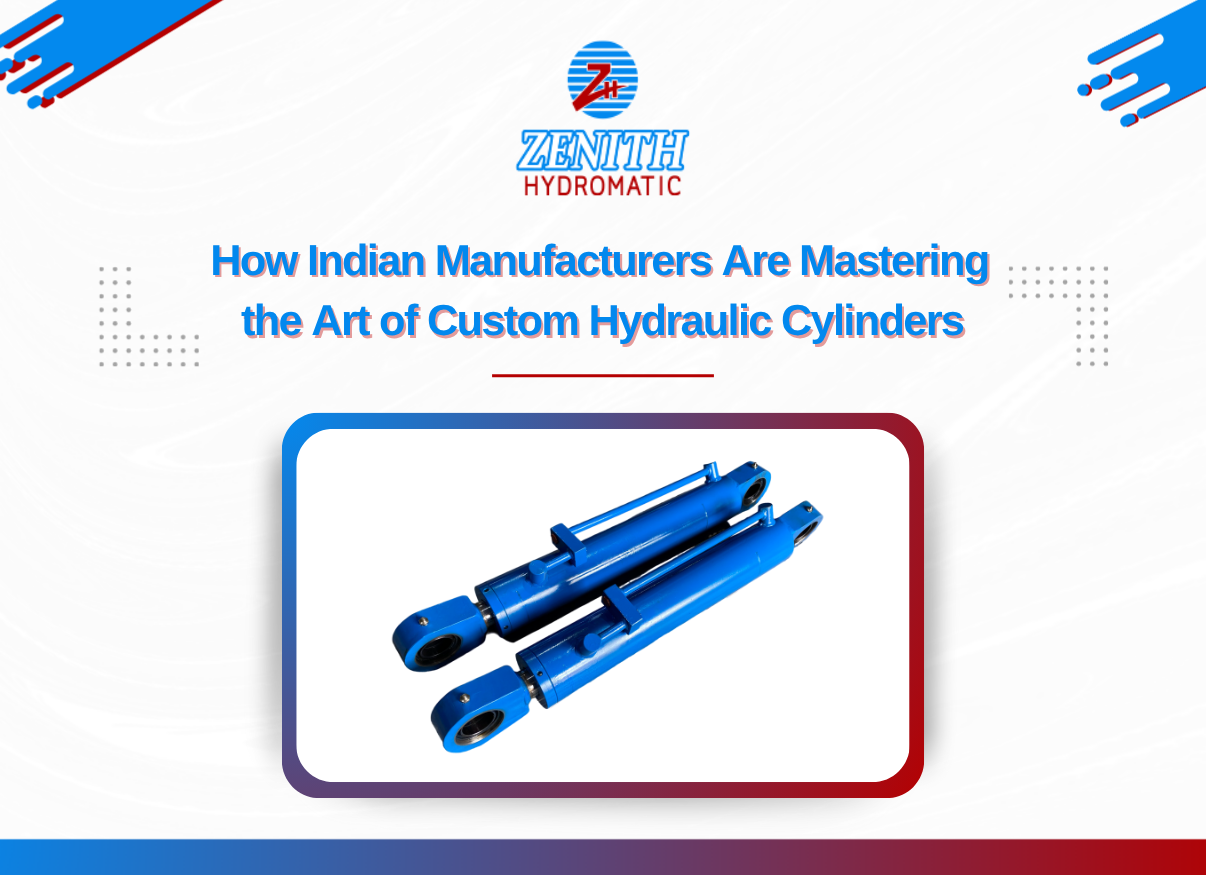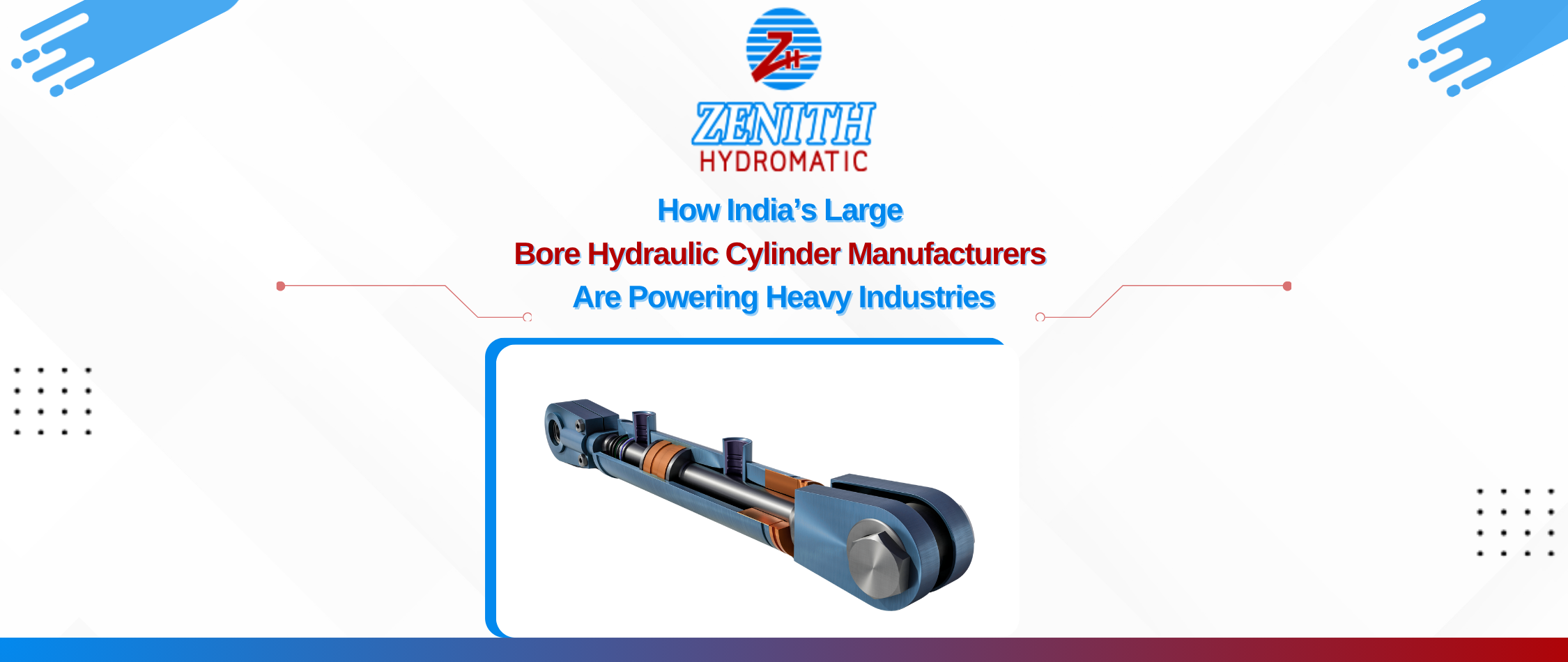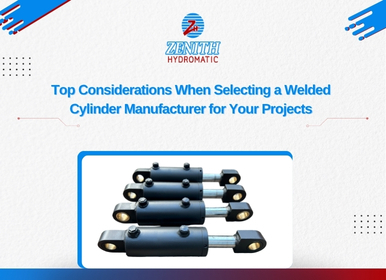
Every modern industry depends on machines to work faster, safer, and more efficiently. But behind the scenes, those machines need a reliable source of energy to perform heavy-duty tasks like lifting, pressing, or rotating with accuracy. That’s where the Hydraulic Power Pack comes in.
From automotive garages to massive steel plants, hydraulic power packs quietly do the hard work that keeps industries running. They may not always be in the spotlight, but without them, many daily operations would come to a halt.
Now, let’s look at what exactly a Hydraulic Power Pack is and how it’s built.
What is a Hydraulic Power Pack?
A Hydraulic Power Pack is basically a self-contained unit that produces hydraulic energy for machines. Unlike a single pump, it’s a complete system that includes everything needed to power hydraulic applications.
Key components include:
- Motor – drives the pump.
- Pump – pressurizes hydraulic oil.
- Reservoir – stores the fluid.
- Valves – control direction, flow, and pressure.
- Filters – keep the fluid clean.
- Hoses & fittings – connect the pack to the machine.
When all these components work together, they create a compact yet powerful unit that can handle jobs far bigger than its size suggests.
Understanding the parts gives a foundation, but the real question is how do these packs actually work? Let’s break it down simply.
Working Principle of a Hydraulic Power Pack
The operation may sound complex, but it’s quite straightforward:
- The motor powers the pump.
- The pump pulls oil from the reservoir.
- The oil is pressurized and sent through hoses.
- This pressurized oil drives cylinders or motors in connected equipment.
- Once the work is done, the oil flows back into the reservoir.
In short, the Hydraulic Power Pack converts mechanical energy into fluid power, which is then transformed into controlled force. This ability to deliver big power in a compact package is what makes them so useful across industries.
Since not every job is the same, hydraulic power packs are available in different types. Let’s explore those next.
Types of Hydraulic Power Packs
Not all power packs are designed the same. Some are made for portability and light-duty work, while others are built for heavy industrial operations. They can be broadly classified into category-based and power-based models.
a) Category-Based Hydraulic Power Packs
High Pressure Hydraulic Power Pack
- Designed for specialized tasks needing up to 700 Bar pressure.
- Commonly used in railway jacks, bolt tensioning tools, and industrial testing machines.
Extra Large Hydraulic Power Pack
- Multi-motor systems with over 200 l/min flow and more than 100 HP.
- Found in steel plants, cement factories, and marine machinery.
- Built for non-stop heavy-duty performance.
Large Hydraulic Power Pack
- Capacity up to 150 l/min with below 50 HP.
- Used in hydraulic presses, cranes, and medium-scale construction equipment.
Compact Hydraulic Power Pack
- Portable and generally under 10 HP.
- Ideal for wheelchair lifts, scissor lifts, and small workshop tools.
b) Power Based Hydraulic Power Packs
Apart from categories, many buyers compare power packs based on horsepower (HP).
1 HP Hydraulic Power Pack
- Best for light-duty tasks like garage tools and testing rigs.
- Most cost-effective option, which is why many search specifically for 1 hp Hydraulic Power Pack Price.
2 HP Hydraulic Power Pack
- Handles slightly larger jobs like compact presses and workshop machinery.
3 HP Hydraulic Power Pack
- Balances power and cost.
- Suited for clamping systems, conveyors, and small industrial machines.
5 HP Hydraulic Power Pack
- Designed for heavy-duty operations such as hydraulic presses and mini cranes.
- Provides steady medium-to-high power output.
The decision between categories and HP models often comes down to workload, budget, and guidance from reliable Hydraulic Power Pack Manufacturers.
Key Features That Make Hydraulic Power Packs Reliable
Hydraulic power packs are valued not only for their power but also for the features that make them practical and safe to use:
- Portability – Compact models are easy to move and install.
- High Power Density – Even small units deliver impressive strength.
- Control – Operators can adjust speed, pressure, and direction as needed.
- Durability – Built to last in tough industrial conditions.
- Safety – Designed with valves and protective systems to avoid accidents.
These features are not just technical advantages; they make a real difference in industries where reliability and efficiency are non-negotiable.
Applications of Hydraulic Power Packs in Different Industries
Hydraulic power packs have become an essential part of many sectors:
- Automotive – Used in car lifts, hydraulic jacks, and presses.
- Construction – Powering cranes, excavators, and drilling rigs.
- Railways – For lifting coaches and track maintenance.
- Defense & Marine – Running steering systems, winches, and deck machinery.
- Steel & Cement Plants – Operating crushers, conveyors, and rolling mills.
Since power packs are used so widely, the next question is: how do you choose the right one for your needs?
Choosing the Right Hydraulic Power Pack and Manufacturer
When buying a Hydraulic Power Pack, a few things matter most:
- Horsepower Requirement – Smaller tasks may only need 1 HP, while heavy-duty jobs require 5 HP or more.
- Price Considerations – Budgets are always important. Many businesses start by checking the 1 hp Hydraulic Power Pack Price before moving to larger systems.
- Manufacturer Reliability – Trusted Hydraulic Power Pack Manufacturers ensure durability, customization, and proper after-sales support.
Making the right choice upfront not only saves money but also prevents downtime in the long run.
Of course, even the best system needs regular care to perform at its peak. Let’s see how maintenance plays a role.
Hydraulic Power Pack Maintenance Tips for Long-Term Reliability
Like any machine, hydraulic power packs perform best when maintained properly. Here are a few tips:
- Check and replace hydraulic oil regularly.
- Clean or change filters to prevent contamination.
- Inspect hoses and valves for leaks or wear.
- Stick to the service schedule recommended by the manufacturer.
Proper maintenance doesn’t just prevent breakdowns it extends the lifespan of your investment.
Now, let’s wrap things up with the bigger picture of why these systems matter so much.
Conclusion:
Hydraulic power packs may not always be visible, but they are the true powerhouse behind modern industries. From compact 1 HP models in workshops to extra-large systems in steel plants, they deliver strength, control, and safety in a way few other technologies can.
When selecting one, consider your workload, compare prices, whether it’s checking or evaluating a larger model and always rely on experienced Hydraulic Power Pack Manufacturers.
The right choice today ensures smooth operations, lower costs, and long-term reliability tomorrow.
FAQs
Q1. What is the lifespan of a hydraulic power pack?
With proper care, most units last 10–15 years, sometimes even longer.
Q2. What factors affect the 1 hp hydraulic power pack price?
The price depends on build quality, brand, included features, and whether safety systems are part of the design.
Q3. How do I know which hydraulic power pack size I need?
It depends on your workload and machine requirements. Smaller tasks may need a 1 HP unit, while industrial operations often require 3 HP or 5 HP packs. Trusted hydraulic power pack manufacturers can guide you to the right choice.
Q4. What are the signs that a hydraulic power pack needs servicing?
Unusual noises, oil leaks, overheating, or slower machine response are common signs that maintenance is needed.
Q5. Can hydraulic power packs be customized for specific applications?
Yes, many hydraulic power pack manufacturers provide custom-built units to match the needs of different industries and machines.



